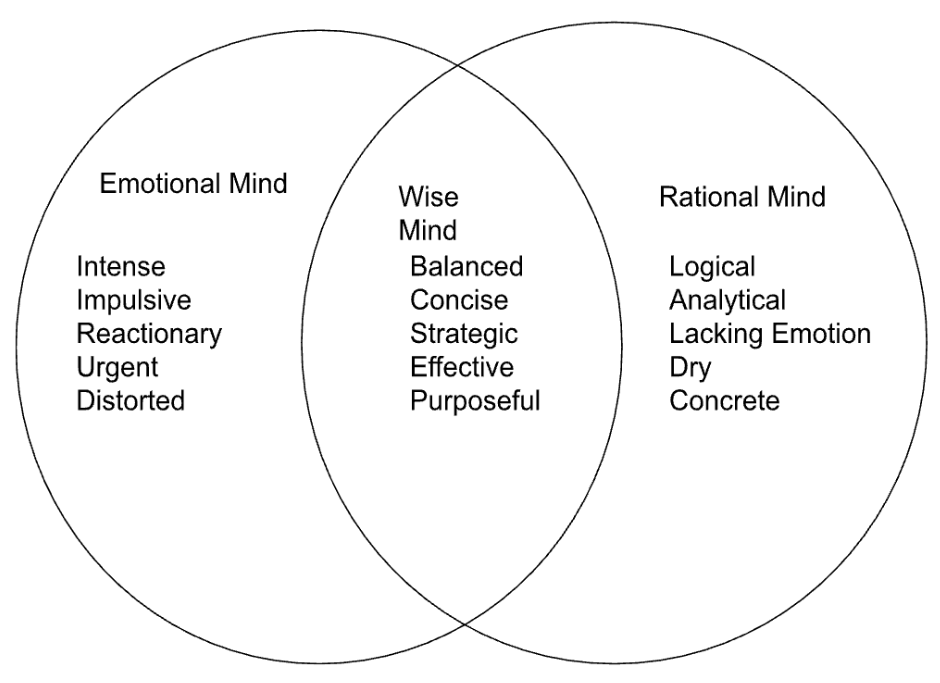Have you ever struggled to get the right words out of your mouth? Have you ever been so reactive in your response that you wish you could bring it back and change what you said? We all struggle from time to time to find effective ways to communicate what we feel and think. Sometimes it is because we are too self conscious or are so over confident that we blurt it out in haste and words come out poorly.
Here is a simple DBT (Dialectical Behavior Therapy) guide to gather your thoughts to effectively communicate.
We are typically in three states of mind, Emotional, Wise, and Rational. In the diagram below, it lists some adjectives to describe the emotions and how we process information in these states of mind.
When we are in the Emotional Mind, we are very passionate. Can you think of times in your life when you are so passionate about something that you want to communicate it to others? Was it intense, impulsive, reactionary, and in the heat of the moment? Was that mode of communication effective? How did you articulate yourself?
The Rational Mind is the opposite of the Emotional Mind. We tend to be very logical, analytical and may come across as dry, uninterested in feedback or dialogue, and may even allude to a one directional conversation. Can you think of times when you were in Rational Mind, and how did you articulate yourself? Was that mode of communication effective?
The Wise Mind is the balance of the two. When we are too Rational, or too Emotional, our communication becomes distorted, one-sided, or even lost in translation due to the analytical nature of what we are explaining. The Wise Mind comes about when we spend time exploring our Mind States and identify the emotion, passions, and urgency in what we want to say and pair that with the Rational Mind of facts, logic, and analysis to come together so that we can articulate effectively what we want to say.
Can you imagine a time when you were in the Wise Mind? How did that come across? Do you see yourself communicating in just one state of mind versus the other? When we are in the Wise Mind and communicating effectively, we often find that the discussion is more purposeful and meaningful to everyone involved. This guide is a helpful DBT tool to practice communication on your own so that you can find your wise words from your wise mind. Practicing Wise Mind is an important way to be mindful of how we communicate effectively and ease some of the underlying issues that come with unhealthy communication issues. Practicing skills helps us be more effective.
If you’re interested in additional DBT skills, take a look at Jamie’s DEARMAN worksheet here.



